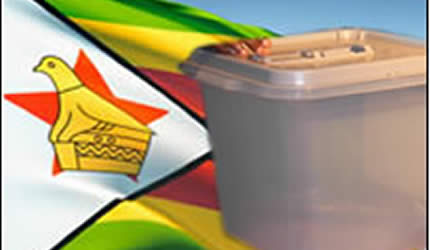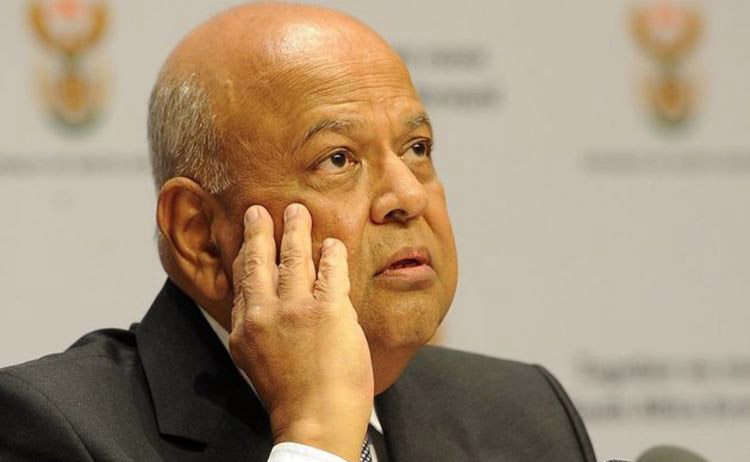Election 2018: Bracing for thrills, spills

Seewell Mashizha Correspondent
IF current indications are anything to go by, things are likely to get more exciting as Zimbabwe gets nearer the 2018 harmonised polls. This could be the silly season in which we are likely to see more than our fair share of a comedy of errors with protagonists falling over themselves in a bid to outdo each other. One wonders if there will be any intrigue this time around. Intrigue in the mould and league of the “Bhora musango” phenomenon that very nearly upstaged zanu-pf in the 2008 polls. NPP leader Joice Mujuru has since owned up to the subterfuge, a revelation that casts her typically in the role of an inveterate schemer.
She has used this to try and leverage her baggage in attaining as high a significance as she can within NERA and the projected grand coalition of opposition forces. Party functionaries in the lower levels are going to be critical in the configurations that are coming, in particular, the activists.
I use the word “activist” with some circumspection given that it can have negative connotations even if unintended. A political party activist should, in principle, be guided by the pronouncements of his political party. In practice, however, the activists tend to digress and be excessive in their enthusiasm.
Since the activist is integral to the party propaganda machine, what he does can make or break a campaign. Of necessity, the activist suppresses whatever does not enhance the interests of his party and promotes what is thought to work. In the 2018 polls, party political propaganda will be pivotal in selling programmes and manifestos. It may be politic here to examine what propaganda is and what it entails.
In general, dictionaries define propaganda as the information, ideas, or rumours spread widely and deliberately to advance or harm the interests of a person, group, movement, institution, nation, and so on. The act of deliberately spreading this catalogue also constitutes propaganda. In short, propaganda is the specific doctrines or principles upheld or propagated by an organization or movement.
Looked at through the lenses just outlined it becomes clear party activists have to be biased in favour of their own party or organisation. This stance is what Hitler called being sufficiently one-sided. There is no middle of the road in these things. Most people view things in binary terms. You are either with them or you are not.
The publicity departments of vibrant political parties are tasked with handling propaganda. Their brief is to make the party an attractive proposition. In this regard, the publicity departments become PR organs and spin-doctoring agencies. In this day with Donald Trump on the seat, publicity departments are seen to be creating and planting fake news. To do this they forge alliances with media houses which subsequently see no evil and hear no evil. This is all too obvious in the case of Zimbabwe.
Just before the demise of Zambia’s United National Independence Party (UNIP) there was a flurry of activity by the research component of that party. The researchers looked into UNIP’s operations as well as those of the then fledgling MMD (Movement for Multi-Party Democracy), initially linked to Lieutenant- General Christon Tembo but eventually led by Frederick Chiluba, a diminutive but fiery speaker who described UNIP as a fatigued party of men who were tired but not retired.
Chiluba and his colleagues composed the infectious slogan: “The hour has come!” And the slogan took root among the voters so much that UNIP was ousted at the polls. This was despite the fact that the academics in UNIP (all of them university lecturers at the University of Zambia) had done a good job researching the comparative strengths and weaknesses of UNIP and the MMD.
At this moment in time there is no direct evidence to show that Zimbabwean political parties have, within their publicity departments, proper research organs to feed into their propaganda machines. The conduct of some of the party spokespersons is at best comical and at worst laughable. They seem to think that being spokesman or publicity secretary is just about being bombastic and belligerent even when that serves no purpose.
In recent times, we began to hear such expressions as, ‘You don’t need to be a rocket scientist . . . ; I am allergic to zanu-pf and so on. People like Obert Gutu and even Douglas Mwonzora of the MDC-T have tended to bring no value to their posts. They seem to think that all they need to do is negate anything that comes from zanu-pf. The result of that is that they neither generate nor propagate anything new for the consumption of the voting public.
The stage is set for either a phenomenal flop or a phenomenal upset in 2018 depending on where one belongs. There is likely to be a surfeit of thrills and spills in Zimbabwe’s sometimes treacherous political terrain in which alliances are forged and broken and forged again.
Recently Zimbabwe woke up to find that a certain Jealousy Mawarire, who is a sort of interim publicity secretary of Joice Mujuru’s somewhat moribund National People’s Party (NPP), had caused physical damage to Gift Nyandoro, the supposed presidential spokesman in the same party.
Ostensibly, the fracas was about who ought to say what, but in fact it was all about guarding one’s perceived turf in preparation for a possible windfall that might catapult the party into Government. The sad thing is that this damning episode between the two functionaries exposes the lack of cohesion and direction in their party. There is no common vison or identity. No ties that bind and no love lost between them.
Harare recently hosted a NERA (National Electoral Reform Agenda) gathering whose purpose was difficult to discern except perhaps in the context of who had come to the gathering. It was supposed to be a gathering of like-minded people and organisations, a gathering at which they would show their relative strengths.
Didymus Mutasa of the now nebulous ZimPF (Zimbabwe People First) was there and seemed not to have shed old habits. He was pictured at the rally with a clenched fist: a zanu-pf gesture! Tendai Biti said something akin to a South African slogan: Amandla! Morgan Tsvangirai spoke about soon flooding the streets but paradoxically seemed to deny the efficacy of street demonstrations when he said:
“Days of flooding the streets are coming. We shall flock (sic) all the streets peacefully demanding that it is our right to a level electoral playing field and that time is coming very soon but not today at this gathering.”
zanu-pf is providing its share of thrills and spills. What with all the talk of Saviour Kasukuwere, the embattled Political Commissar of the party, being accused of all sorts of things including trying to force a cult leader, Mudzidzi Wimbo of Madziva, to concoct a prophecy casting him in the role of future president of Zim- babwe.
In a strange twist of events, Kasukuwere has been at loggerheads with The Herald and is alleged not only to have threatened journalists from that stable, but also to have done so in the foulest of language. The Herald has also been the object of verbal barbs from Jonathan Moyo. Strange happenings indeed, given that the Zimpapers stable is a pro-Government entity.
A welcome exception to the blundering parochialism that seems to be characteristic of our current politics is the recent rare moment (since the GNU) in Parliament when there was unanimity in praising the appointment of Justice Luke Malaba to the post of Chief Justice. Nelson Chamisa, one of Morgan Tsvangirai’s three vice presidents, was quite effusive in his praise and acceptance of the appointment. If only there could be more such convergence across the nation!
Any serious analyst must wonder a little if the country’s politicians should not be upping their acts and even priming their skills ahead of the polls. What we see instead is a fatalistic attraction for the fault lines in their political fabric.
Perhaps they need to look at themselves and introspect a little about who or what they are and what they might be perceived to be by others. Rather than espouse violence as a political tool the parties could adopt other means such as research and further propaganda. History provides useful examples of what to do and what not to do.
In 1933, Hitler’s government set up a Ministry of Enlightenment and Propaganda. The mandate of this new ministry was to mobilise, manipulate, control, direct and educate the population. It seems to me that this is still very much the objective of political parties everywhere, including those in Zimbabwe, whether they acknowledge this or not. The party that can do these things most successfully wins the day at the polls.
Zimbabwe’s politicians must learn how to manage public opinion through the use of various publicity tools including film, news publications, posters, artwork, radio broadcasts and, of course, social media. Meanwhile, we sit and watch as more comic dramas unfold.







Comments